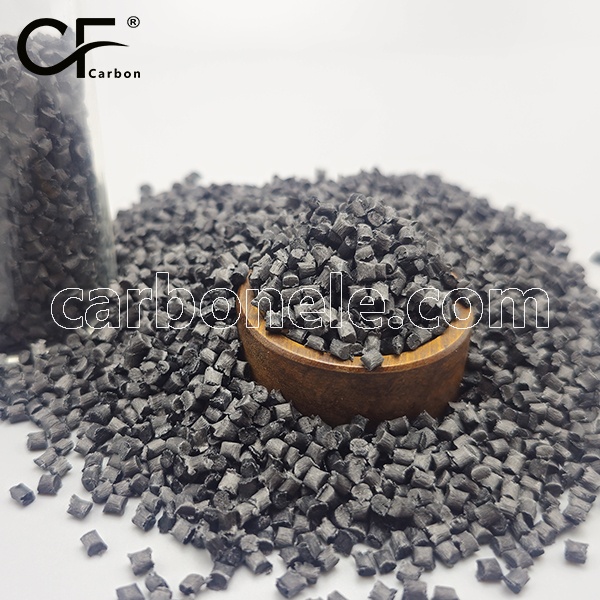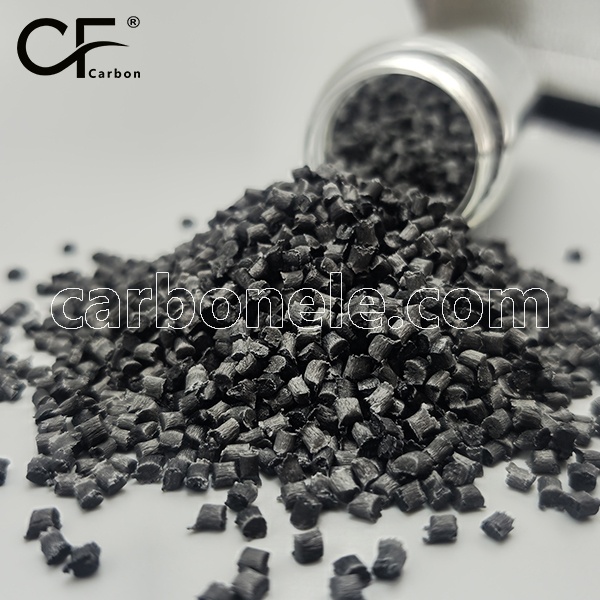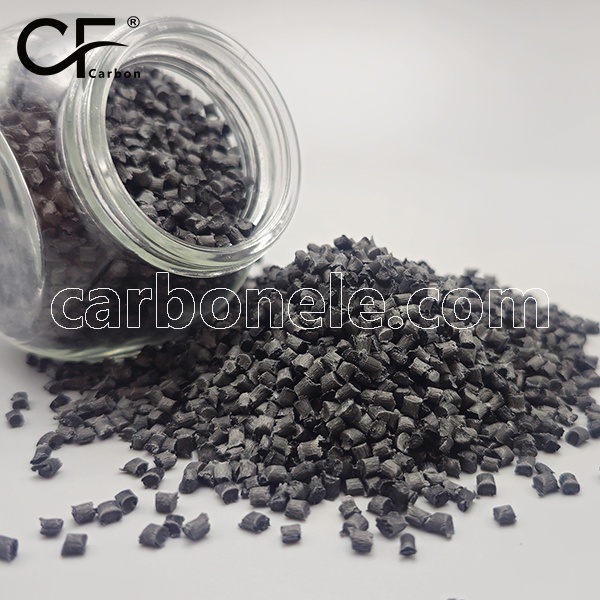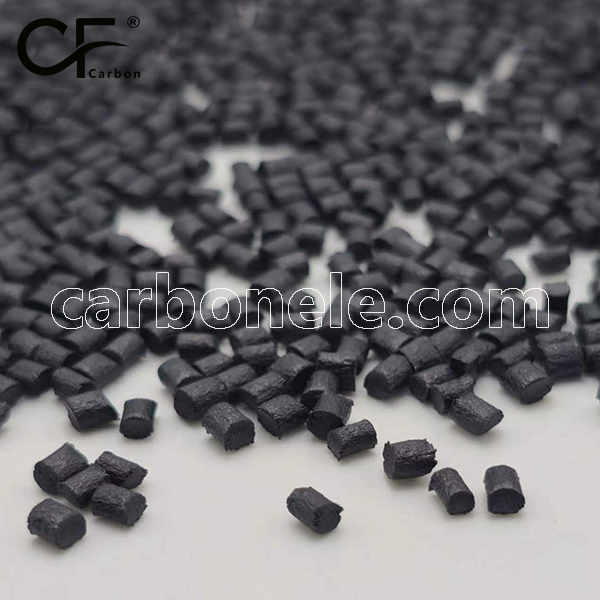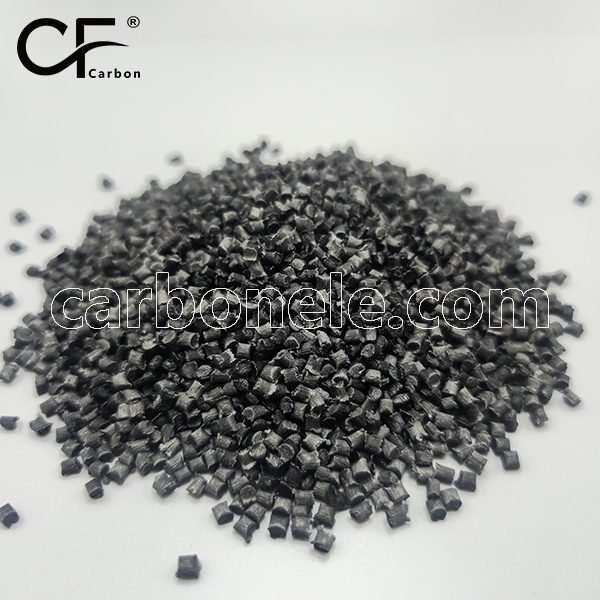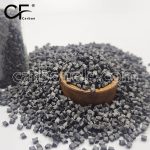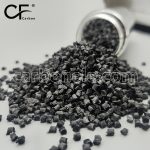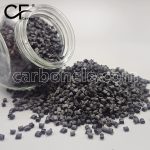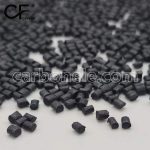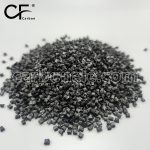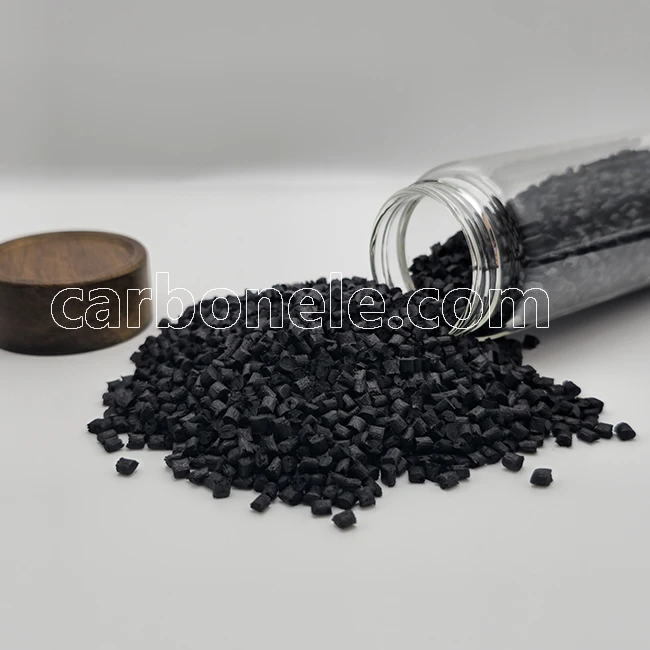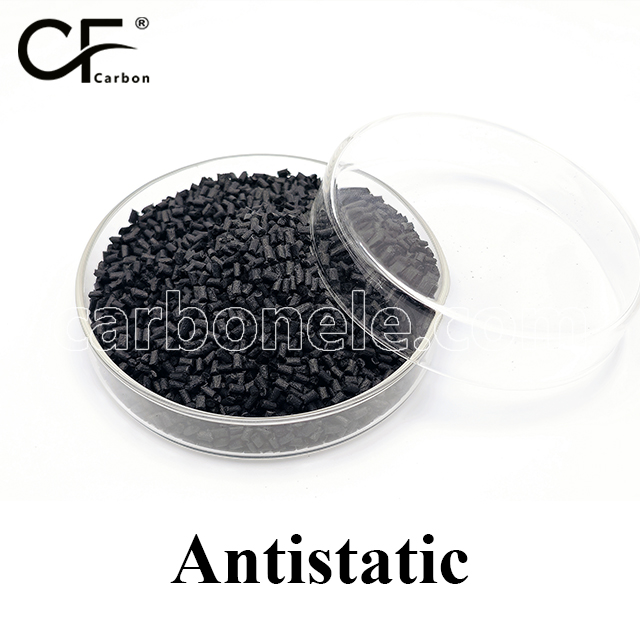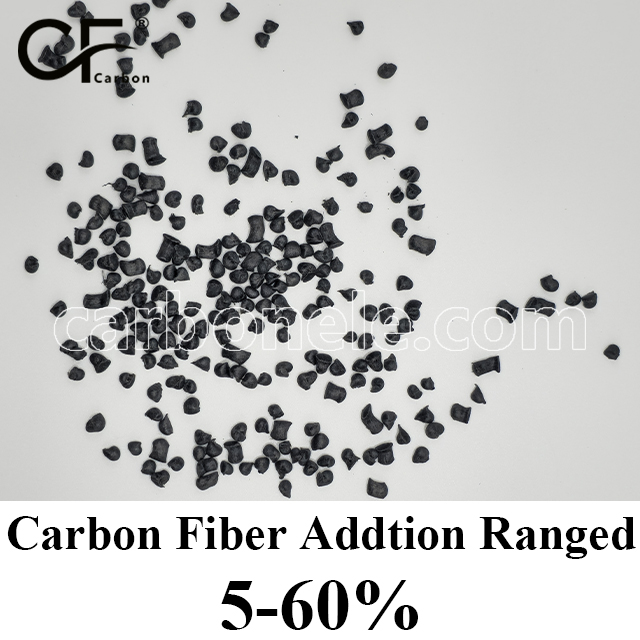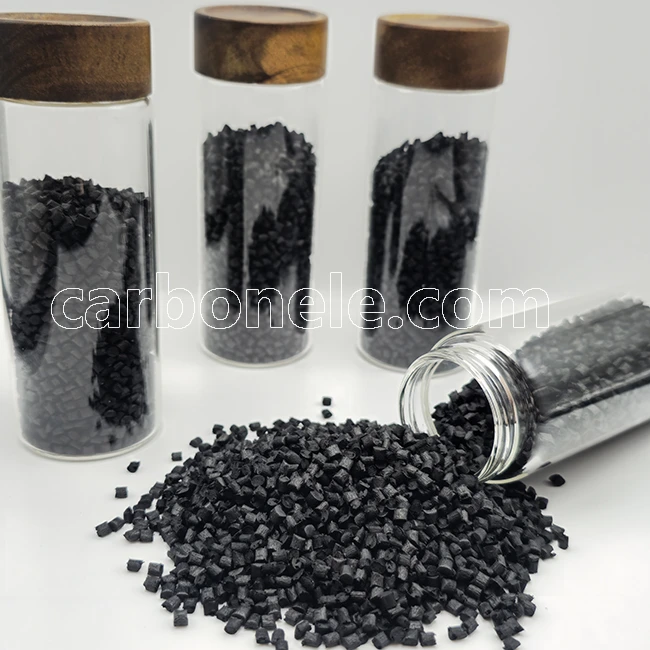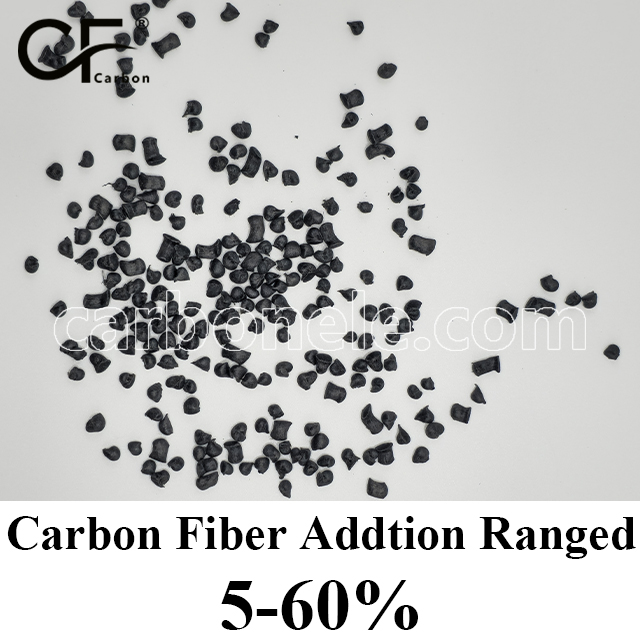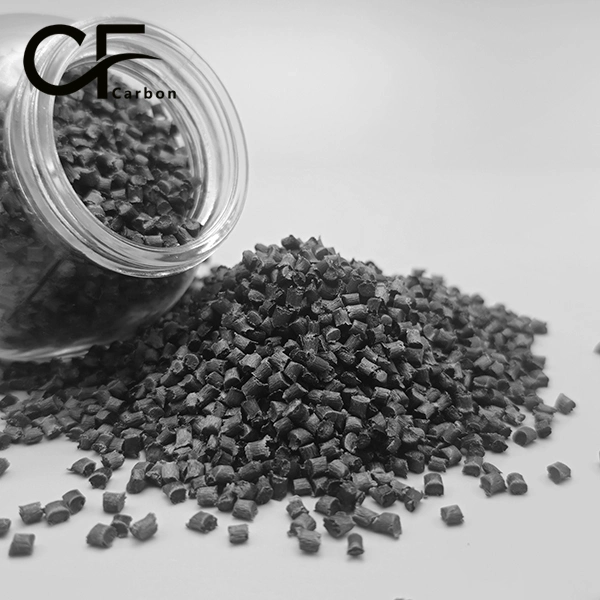The friction coefficient of PC-CF is lower than that of unreinforced PC due to the presence of carbon fiber, which enhances wear resistance and reduces surface friction. Standard PC has a relatively high friction coefficient, making it prone to surface wear in applications with repeated contact or sliding motion. The addition of carbon fiber in PC-CF improves tribological performance, lowering friction and reducing material degradation over time. This makes PC-CF a better choice for applications requiring lower friction, improved wear resistance, and higher durability under mechanical stress.

Robust PC-CF10 Panel – Industrial Strength
Robust PC-CF10 carbon fiber panels deliver industrial-grade strength, impact resistance & dimensional stability for machine guards, control panels & enclosures. Durable, lightweight & chemical-resistant—engineered for harsh environments
- Model number: PC-CF-BCA1
- Matrix Resin: Polycarbonate (PC)
- Reinforcing Filler: Carbon fiber
- Appearance: Granules
- Grade: Injection/extrusion grade
- Packaging: 25kgs/bag
Robust PC-CF10 Panel – Industrial Strength
Introduction to PC-CF10
PC-CF10 is a high-performance composite material that merges the reliable toughness of polycarbonate with the structural reinforcement of carbon fiber. This combination delivers exceptional durability, stability, and resistance to demanding industrial environments.
When used in panel applications, it offers both mechanical resilience and aesthetic quality, making it ideal for equipment housings, machine guards, and control enclosures. Its reinforced composition enhances rigidity while maintaining manageable weight, allowing engineers to design panels that last longer and perform better under heavy-duty conditions.
Why PC-CF10 Stands Out in Industrial Panels
Mechanical Resilience
Superior Structural Integrity
PC-CF10’s carbon fiber reinforcement increases stiffness and load-bearing capacity, enabling panels to resist bending or deformation even under significant mechanical stress.
Impact Resistance
Industrial panels often face accidental impacts from tools, equipment, or operator contact. PC-CF10 provides the robustness needed to protect underlying systems without cracking or chipping.
Dimensional Stability
Resistance to Warping
PC-CF10 retains its shape and alignment even when exposed to fluctuating temperatures or varying humidity levels. This is crucial in industrial facilities where environmental conditions can change rapidly.
Precision Fit
A stable panel ensures accurate mounting and a secure fit, preventing gaps, rattles, or misalignment in assembled machinery.
Real-World Application – Machine Control Panel
In an industrial setting, a machine control panel must be both protective and user-friendly. It shields sensitive electronics from dust, debris, and mechanical damage while providing operators with direct access to controls.
PC-CF10 excels in this role by combining protective strength with a professional finish. Its toughness prevents damage from routine operations, while its surface quality supports labeling, engravings, or touch-screen integration without degrading over time. The result is a panel that remains reliable and presentable throughout its service life.
Processing and Manufacturing Benefits of PC-CF10
Compatibility with Fabrication Methods
Machining and Cutting
PC-CF10 can be precisely cut, drilled, or machined without compromising structural integrity, allowing for accurate openings for controls, displays, and ventilation.
Design Freedom and Integration Potential
Aesthetic and Functional Balance
While its primary appeal lies in durability, PC-CF10 also provides a refined surface finish. Panels can be left in their natural carbon fiber-textured appearance or coated for specific branding needs.
Multi-Component Integration
PC-CF10 supports the integration of mounting points, cable routing channels, and embedded features directly into the panel design, reducing assembly complexity.
Performance in Harsh Industrial Conditions
Wear and Abrasion Resistance
Frequent contact with tools, gloves, and moving parts can quickly wear down inferior materials. PC-CF10 resists such abrasion, ensuring panels maintain both function and appearance.
Chemical and UV Stability
In industries where cleaning agents, lubricants, or UV exposure are common, PC-CF10 maintains its properties without fading, degrading, or becoming brittle.
Sustainability Considerations
PC-CF10’s long service life contributes to reduced material waste, as panels do not require frequent replacement. Additionally, its compatibility with established recycling processes for polycarbonate-based composites supports responsible end-of-life handling.
Conclusion – PC-CF10 as the Industrial Panel Solution
PC-CF10 represents a new standard for industrial panel applications. Its combination of polycarbonate toughness, carbon fiber stiffness, and long-term stability makes it a premium choice for engineers and designers seeking dependable performance.
If you want to get more information about PC-CF20, you can visit our YouTube.
Strength between PC and PC-CF
The strength of PC-CF is higher than unreinforced PC due to the addition of carbon fiber, which enhances tensile and flexural strength, stiffness, and dimensional stability. While standard PC is known for its high impact resistance and toughness, it lacks the rigidity needed for structural applications. PC-CF, with carbon fiber reinforcement, significantly improves stiffness and load-bearing capacity while maintaining good impact resistance. However, higher carbon fiber content may slightly reduce ductility compared to pure PC. This makes PC-CF an ideal choice for applications requiring greater strength, wear resistance, and stability under mechanical stress.
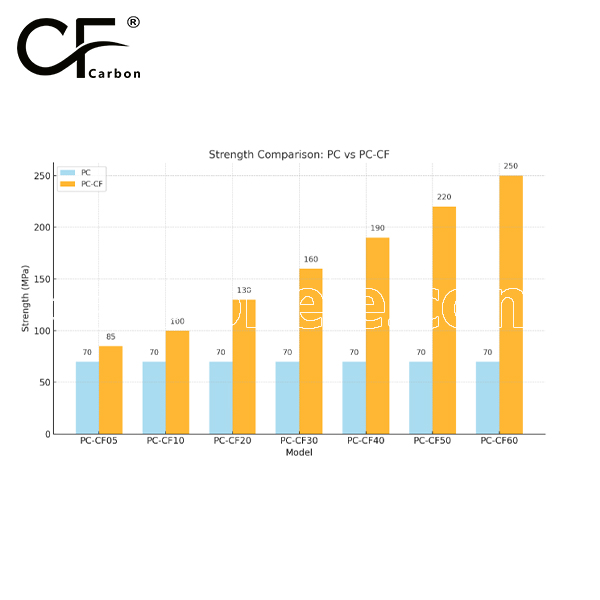
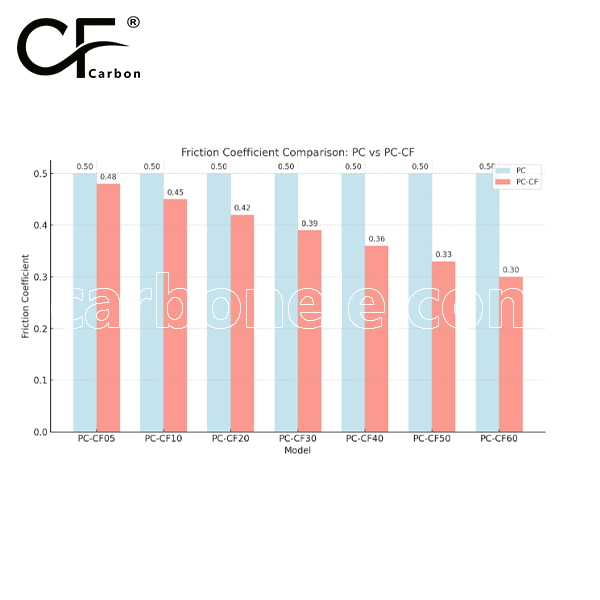

Frequently Asked Questions
Carbon (Xiamen) New Material Co., Ltd. aims to provide buyers with "one-stop" worry-free high-quality services. Here you can find all information about carbon fiber engineering plastics. If you still have questions, please send us an email for consultation!
-
How can I contact the manufacturer of a product that interests me?
When you find a product you are interested in, you can contact the manufacturer directly by sending an email and we will get back to you as soon as possible.
-
How do I find the products that interest me?
All you need to do is enter the keyword, product name in the search window and press the Enter key on your keyboard. Your search results page will then be displayed. You can also search within the product category pages on the home page. Each category is divided into subcategories, allowing you to refine your search and find products that interest you.
-
Where will I find a buying guide?
Please contact our after-sales service directly and we will provide you with a comprehensive operating guide.
-
What are CF Reinforced Thermoplastic Composites?
CF Reinforced Thermoplastic Composites are materials where carbon fibers are incorporated into a thermoplastic matrix. They combine the strength and stiffness of carbon fibers with the processability and recyclability of thermoplastics. For instance, they are used in automotive parts like bumper beams.
-
What are the benefits of CF Reinforced Thermoplastic Composites over traditional composites?
The key benefits include faster production cycles, easier recyclability, and better impact resistance. They also offer design flexibility. An example is in the manufacturing of consumer electronics casings where complex shapes can be achieved more easily.
-
How are CF Reinforced Thermoplastic Composites processed?
Common processing methods include injection molding, extrusion, and compression molding. Injection molding is widely used for mass production. For example, in the production of small components for the medical industry.
-
What industries use CF Reinforced Thermoplastic Composites?
They are utilized in aerospace, automotive, medical, and sports equipment industries. In aerospace, they can be found in interior components. In the medical field, they might be used in prosthetics.
-
How does the carbon fiber content affect the properties of the composites?
Higher carbon fiber content generally leads to increased strength and stiffness but may reduce ductility. A moderate content is often balanced for specific applications. For example, a higher content might be preferred in structural parts of a race car.
-
What are the challenges in using CF Reinforced Thermoplastic Composites?
Challenges include higher material costs, complex processing equipment requirements, and ensuring uniform fiber dispersion. Issues with adhesion between the fibers and the matrix can also arise. An example is in achieving consistent quality in large-scale production.







